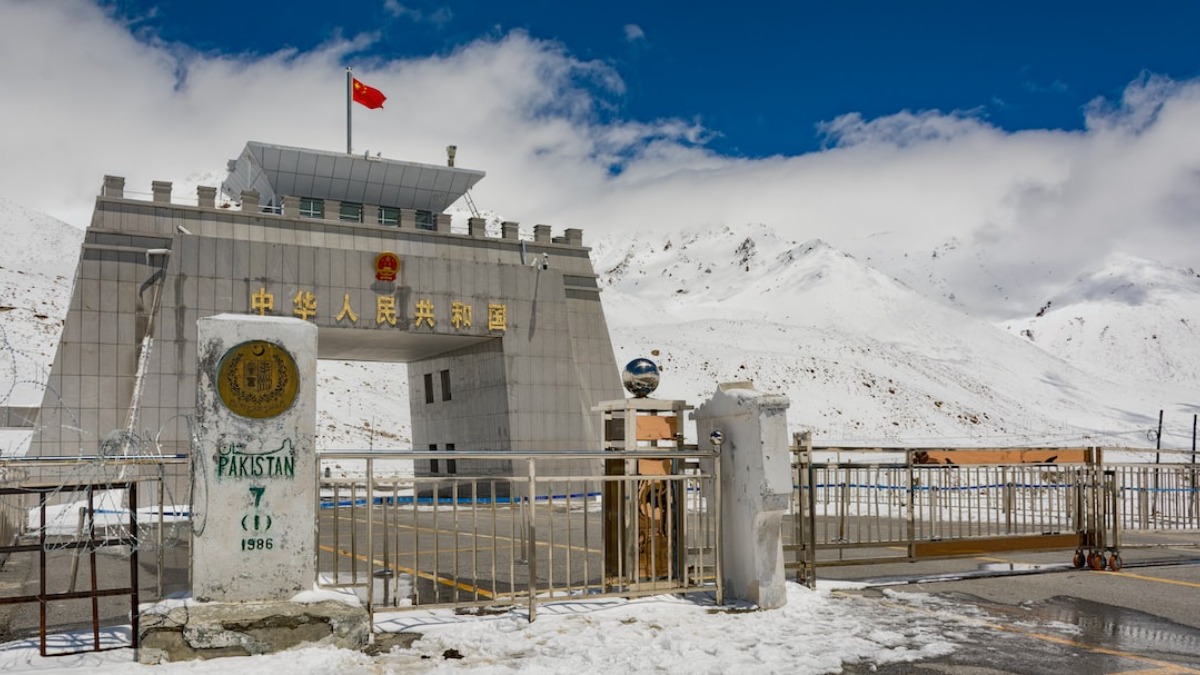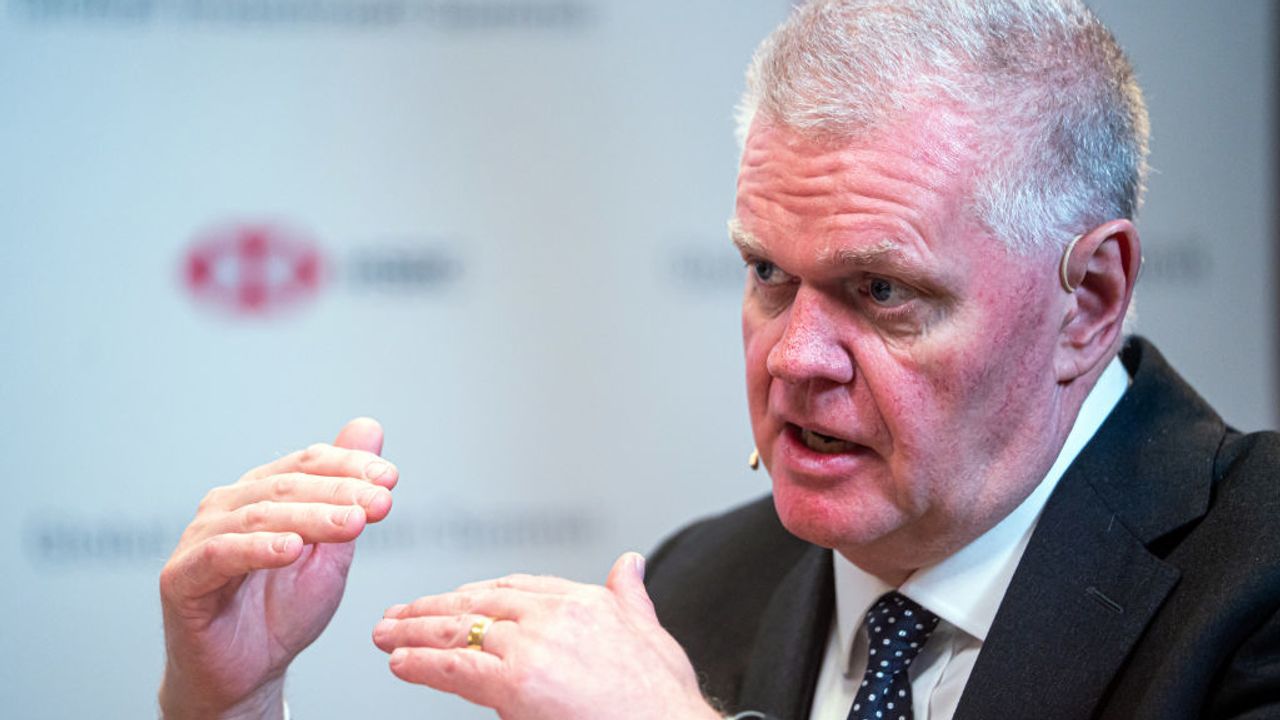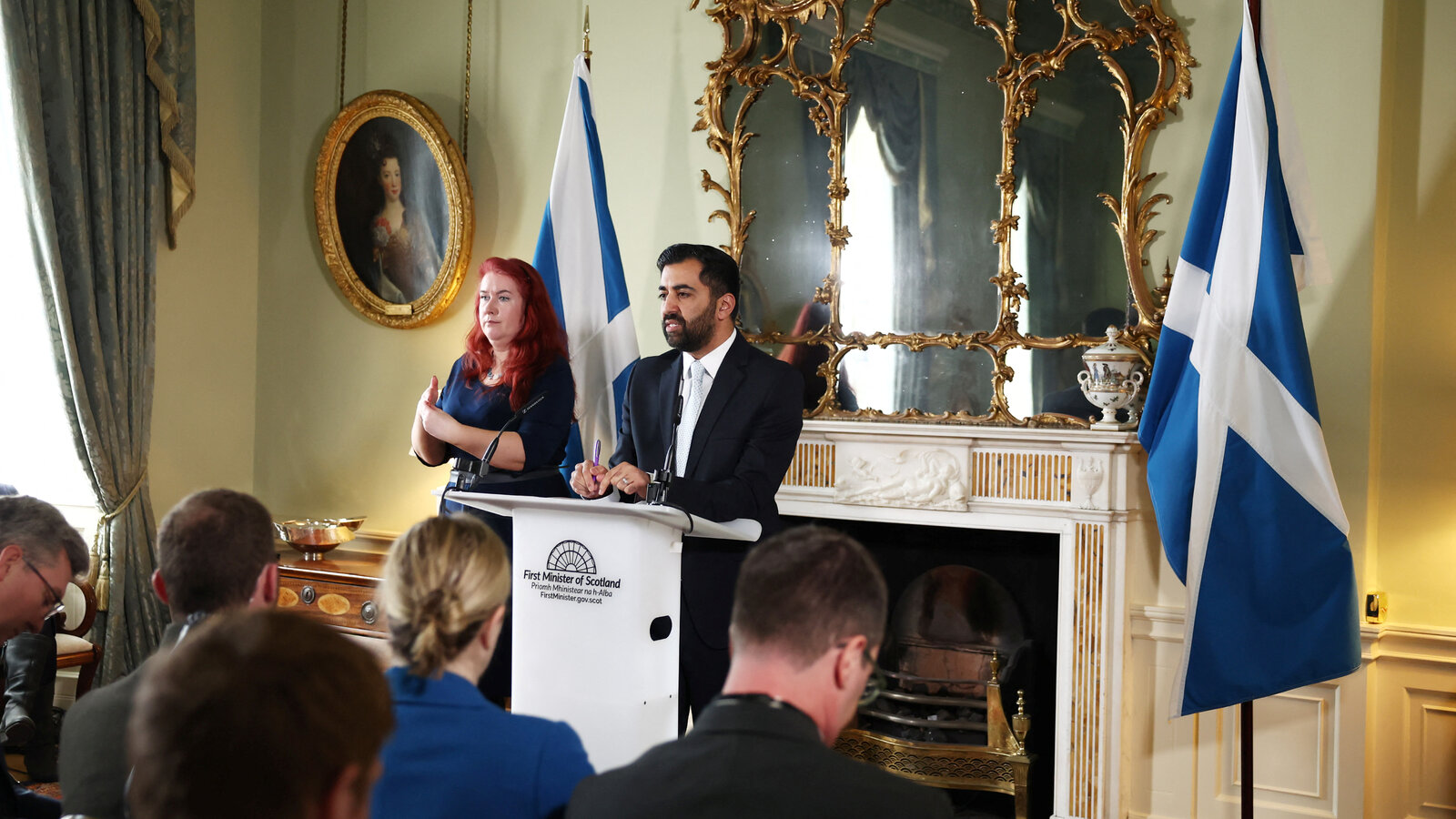Opinion
SINO-PAK Relations in the Emerging China Order: An In-Depth Analysis

Table of Contents
Introduction
The strategic alliance between China and Pakistan, often referred to as “all-weather friends,” has been a significant factor in shaping the dynamics of the emerging China order. In this blog article, we will explore the multifaceted aspects of SINO-PAK relations, analyzing their historical background, shared interests, economic cooperation, military ties, and geopolitical implications. Join us on this journey to gain a comprehensive understanding of the evolving partnership between China and Pakistan.
Historical Background
The foundation of SINO-PAK relations dates back to the early 1950s when Pakistan became one of the first countries to recognize the People’s Republic of China. This mutual recognition laid the groundwork for a lasting friendship based on shared ideological interests and strategic imperatives. Over the years, the relationship has grown stronger, characterized by high-level visits, defense cooperation, and cultural exchanges.
Shared Interests
China and Pakistan share common interests in various domains. Both nations prioritize territorial integrity, which has manifested in their cooperation on issues related to sovereignty and border management. China supports Pakistan’s stance on the Kashmir dispute, advocating for a peaceful resolution in accordance with the aspirations of the Kashmiri people.
Moreover, both countries emphasize regional stability and counterterrorism efforts. The China-Pakistan Economic Corridor (CPEC), a flagship project of China’s Belt and Road Initiative (BRI), aims to improve regional connectivity, boost economic development, and enhance security cooperation. This ambitious initiative underscores the convergence of interests between China and Pakistan in promoting regional stability and prosperity.
Economic Cooperation
Economic cooperation between China and Pakistan has witnessed remarkable growth in recent years. The CPEC, a collection of infrastructure projects, energy ventures, and industrial zones, has transformed the economic landscape of Pakistan. It has created thousands of job opportunities, improved transportation networks, and bolstered energy security.
The CPEC has enabled Pakistan to overcome infrastructure bottlenecks and attract foreign direct investment. Chinese investments have played a crucial role in developing Pakistan’s energy sector, modernizing its transportation infrastructure, and expanding its industrial base. This economic collaboration has not only benefitted Pakistan but has also opened up new markets and opportunities for Chinese businesses.
Military Ties
China and Pakistan maintain robust military ties, encompassing joint exercises, defense technology cooperation, and personnel exchanges. The two nations engage in regular military drills, including the “Warrior” series, aimed at enhancing interoperability and sharing experiences in counterterrorism operations. Moreover, China has provided advanced military hardware to Pakistan, bolstering its defense capabilities.
In recent years, the relationship has expanded to include joint production of defense equipment. This collaboration has not only strengthened Pakistan’s defense industry but has also cemented the bilateral defense cooperation between the two countries.
Geopolitical Implications
The deepening SINO-PAK relationship carries significant geopolitical implications. For China, Pakistan serves as a strategic partner in countering India’s influence in the region. The partnership helps maintain a favorable balance of power and ensures China’s access to the Arabian Sea, bypassing the Malacca Strait.
Additionally, the China-Pakistan nexus challenges the influence of the United States in South Asia. The closer ties between China and Pakistan have prompted the U.S. to recalibrate its regional policies, particularly regarding Afghanistan, where China has played an increasingly assertive role in promoting stability.
Conclusion
The SINO-PAK relationship has evolved into a comprehensive partnership, encompassing various dimensions of bilateral cooperation. The historical background, shared interests, economic collaboration, military ties, and geopolitical implications all contribute to the emerging China order. As China’s influence continues to grow on the global stage, the deepening partnership with Pakistan will undoubtedly play a crucial role in shaping regional dynamics in South Asia
Finance
HSBC’s Noel Quinn Steps Down: Navigating the Bank’s Future After a Tumultuous Tenure

Table of Contents
Introduction
In a surprising move, HSBC has announced that its Chief Executive, Noel Quinn, will be stepping down after a five-year tenure. Quinn, a long-time HSBC veteran, has been credited with steering the bank through the challenges of the COVID-19 pandemic and a high-profile battle with its largest shareholder, Ping An Insurance Group.
The news of Quinn’s departure has sent shockwaves through the financial industry, as HSBC grapples with finding a new leader to navigate the bank’s future. In this in-depth analysis, we will explore the factors that led to Quinn’s decision, the potential implications for HSBC, and the key considerations the bank must address as it searches for a new chief executive.
Noel Quinn’s Tenure: Navigating Turbulent Times
Noel Quinn’s tenure as HSBC’s Chief Executive has been marked by a series of significant challenges and transformative events. When he assumed the role in 2019, the bank was already facing headwinds, including the ongoing trade tensions between the United States and China, as well as the uncertainty surrounding Brexit.
The COVID-19 Pandemic: A Defining Moment
The COVID-19 pandemic, however, proved to be the most significant test of Quinn’s leadership. As the global health crisis unfolded, HSBC was forced to navigate a rapidly changing landscape, with lockdowns and economic disruptions impacting its operations and customer base.
Under Quinn’s guidance, HSBC took swift action to support its clients and employees, implementing measures such as loan payment deferrals, remote work arrangements, and enhanced digital banking services. The bank also bolstered its balance sheet, raising additional capital to weather the storm.
Despite the challenges, HSBC managed to maintain its profitability during the pandemic, a testament to Quinn’s steady hand and the bank’s resilience.
The Ping An Saga: A Shareholder Showdown
One of the most high-profile events during Quinn’s tenure was the battle with HSBC’s largest shareholder, Ping An Insurance Group. The Chinese conglomerate had been pushing for a breakup of the bank, arguing that a spin-off of its Asian operations would unlock greater value for shareholders.
Quinn, however, remained steadfast in his commitment to HSBC’s global strategy, rejecting Ping An’s proposals and defending the bank’s integrated model. The standoff between the two parties escalated, with Ping An even going so far as to call for Quinn’s removal.
Ultimately, HSBC’s board of directors stood by Quinn, reaffirming their support for his leadership and the bank’s strategic direction. This victory, however, came at a cost, as the prolonged battle with Ping An added to the stress and scrutiny faced by Quinn and the HSBC team.
Navigating Geopolitical Tensions
In addition to the pandemic and the Ping An saga, Quinn also had to navigate the increasingly complex geopolitical landscape, particularly the tensions between the United States and China. As a global bank with significant operations in both countries, HSBC found itself caught in the crossfire, facing pressure from both sides.
Quinn’s handling of these delicate situations was widely praised, as he sought to maintain HSBC’s neutrality and protect the bank’s interests while avoiding being drawn into the political fray.
The Decision to Step Down: Reasons and Implications
Given the significant challenges and pressures Quinn has faced during his tenure, his decision to step down as HSBC’s Chief Executive is not entirely surprising. In his announcement, Quinn cited the need for “rest” after steering the bank through the pandemic and the Ping An battle.
Burnout and the Toll of Leadership
The demands of leading a global financial institution like HSBC during such turbulent times can be immense, both physically and mentally. Quinn’s decision to step down may be a reflection of the toll that the job has taken on him, as he seeks to prioritize his well-being and find a better work-life balance.
Burnout among senior executives is a growing concern in the corporate world, and Quinn’s departure serves as a reminder that even the most seasoned and successful leaders are not immune to the stresses of their roles.
Timing and Succession Planning
The timing of Quinn’s departure is also noteworthy, as it comes at a critical juncture for HSBC. The bank is still navigating the aftermath of the pandemic and the ongoing geopolitical tensions, and the search for a new chief executive will be a crucial decision that will shape the bank’s future.
HSBC’s board of directors will need to carefully consider the qualities and experience required in the next leader, as they seek to build on the progress made under Quinn’s tenure and chart a course for the bank’s long-term success.
The Road Ahead: Challenges and Opportunities for HSBC’s Next Leader
As HSBC embarks on the search for a new Chief Executive, the bank will face several key challenges and opportunities that will shape its future direction.
Addressing Shareholder Concerns
One of the primary tasks for HSBC’s next leader will be to address the concerns of its shareholders, particularly Ping An Insurance Group. The battle with Ping An has been a significant distraction and has raised questions about the bank’s strategic direction and its ability to deliver value for its investors.
The new Chief Executive will need to find a way to rebuild trust with Ping An and other shareholders, while also articulating a clear and compelling vision for HSBC’s future. This may involve revisiting the bank’s global strategy, exploring potential restructuring or divestment options, and demonstrating a commitment to improving financial performance and shareholder returns.
Navigating Geopolitical Tensions
The ongoing geopolitical tensions between the United States and China will continue to be a major challenge for HSBC’s next leader. The bank’s global footprint and its presence in both countries make it particularly vulnerable to the fallout from these tensions, and the new Chief Executive will need to navigate this complex landscape with skill and diplomacy.
This may involve strengthening HSBC’s relationships with key stakeholders in both countries, diversifying the bank’s geographic exposure, and developing a more robust risk management framework to mitigate the impact of geopolitical events.
Driving Digital Transformation
The COVID-19 pandemic has accelerated the pace of digital transformation in the banking industry, and HSBC will need to ensure that it remains at the forefront of this trend. The next Chief Executive will be tasked with investing in technology, enhancing the bank’s digital capabilities, and delivering a seamless and personalized customer experience.
This will require a deep understanding of the latest trends and technologies in the financial services sector, as well as the ability to build and lead a talented team of digital experts.
Fostering a Culture of Innovation and Sustainability
In addition to the operational and strategic challenges, HSBC’s next leader will also need to focus on fostering a culture of innovation and sustainability within the organization. This will involve promoting a mindset of continuous improvement, encouraging employees to think creatively, and aligning the bank’s activities with the growing emphasis on environmental, social, and governance (ESG) considerations.
By embracing a culture of innovation and sustainability, HSBC can position itself as a leader in the industry, attracting top talent and positioning the bank for long-term success.
Conclusion: A Pivotal Moment for HSBC
Noel Quinn’s departure as HSBC’s Chief Executive marks a pivotal moment for the bank, as it navigates a complex and rapidly evolving landscape. The next leader will need to draw on their extensive experience, strategic vision, and leadership skills to address the bank’s key challenges and capitalize on the opportunities that lie ahead.
As HSBC embarks on this search, it will be crucial for the bank to identify a candidate who can build on the progress made under Quinn’s tenure, while also charting a new course that delivers sustainable growth and value for the bank’s shareholders, customers, and employees.
The road ahead may be challenging, but with the right leadership and a clear strategic direction, HSBC has the potential to emerge as an even stronger and more resilient global financial institution, poised to thrive in the years to come.
News
Scotland’s Political Landscape Shifts: Humza Yousaf’s Surprise Resignation as First Minister

In a shocking turn of events, Humza Yousaf, the leader of the Scottish National Party (SNP), has announced his resignation as Scotland’s First Minister, effective immediately. This unexpected move comes less than a week after he dissolved the coalition with the Scottish Greens, a partnership that had been in place since 2021. The sudden departure of Scotland’s most senior politician has sent shockwaves throughout the country, leaving many wondering what lies ahead for the nation’s political landscape.
The Background
Humza Yousaf, a 37-year-old politician, has been a key figure in Scottish politics for over a decade. He was first elected to the Scottish Parliament in 2011 and quickly rose through the ranks, becoming the SNP’s health spokesperson and later the party’s deputy leader. In 2023, he succeeded Nicola Sturgeon as the SNP leader and First Minister of Scotland, becoming the country’s youngest-ever head of government.
The Coalition Collapse
The decision to dissolve the coalition with the Scottish Greens was a significant blow to the SNP’s governing prospects. The partnership had been seen as a key factor in the SNP’s ability to maintain power in Scotland, with the Greens providing crucial support in key votes. The collapse of the coalition was attributed to disagreements over key policies, including the SNP’s stance on the Scottish independence referendum.
The Resignation
Yousaf’s resignation as First Minister has sparked widespread speculation about the reasons behind his decision. While he has not provided a detailed explanation, sources close to the SNP suggest that the collapse of the coalition and the subsequent loss of support from the Greens were significant factors. Additionally, there have been rumors of internal party divisions and disagreements over the SNP’s direction, which may have contributed to Yousaf’s decision.
The Impact on Scottish Politics
Yousaf’s resignation has sent shockwaves throughout Scottish politics, leaving the SNP without a clear leader and the country without a functioning government. The Scottish Greens, who had been a key partner in the coalition, have announced that they will not support the SNP in any future votes, further complicating the political landscape. The opposition parties, including the Scottish Conservative Party and the Scottish Labour Party, have called for new elections, citing the instability and uncertainty caused by Yousaf’s resignation.
The Future of Scottish Independence
The resignation of Humza Yousaf has significant implications for the future of Scottish independence. The SNP had been a key driver of the independence movement, and Yousaf’s departure raises questions about the party’s ability to continue leading the charge. The Scottish Greens, who had been a key partner in the coalition, have announced that they will not support the SNP’s independence referendum, further complicating the issue.
The Search for a New Leader
The SNP is now faced with the task of finding a new leader, a process that is expected to be lengthy and contentious. The party’s deputy leader, Keith Brown, has been tipped as a potential successor, but other candidates are also expected to emerge. The search for a new leader will be closely watched, as the SNP’s ability to recover from Yousaf’s resignation will depend on its ability to find a strong and effective leader.
Conclusion
Humza Yousaf’s resignation as First Minister of Scotland significantly develops the country’s political landscape. The collapse of the coalition with the Scottish Greens and the subsequent loss of support has left the SNP without a clear leader and the country without a functioning government. The search for a new leader will be a critical period for the SNP, as the party seeks to recover from this unexpected setback. The future of Scottish independence hangs in the balance, and the outcome of this crisis will have significant implications for the country’s political direction.
Energy
DTE Energy’s Renewable Energy Programs Make the 2024 NFL Draft a Carbon Neutral Event

Introduction
The 2024 NFL Draft in Detroit is set to be a historic event as DTE Energy, the National Football League (NFL), and Visit Detroit collaborate to make it carbon-neutral. This partnership marks a significant milestone in the journey towards sustainability, as hundreds of thousands of visitors descend on Detroit for the event, which runs from April 25-27. The NFL has turned to DTE Energy’s renewable energy programs, MIGreenPower and Natural Gas Balance, to offset the carbon footprint of the energy required for the event.
The Carbon Footprint of the NFL Draft
The NFL Draft is a massive undertaking, with numerous event production and operation needs, food and beverage preparation and consumption, merchandise sales, and air and ground transportation for NFL employees and vendors. The sheer scale of the event generates a substantial carbon footprint. DTE Energy’s involvement in the 2024 NFL Draft aims to reduce the environmental impact of these activities.
DTE Energy’s Renewable Energy Programs
DTE Energy has a robust system of carbon offsets in place, including the voluntary Natural Gas Balance program, which helps customers reduce their carbon footprints. This program will be instrumental in offsetting the emissions generated by the NFL Draft’s energy consumption.
MIGreenPower, another voluntary renewable energy program by DTE, supports the development of wind and solar parks in Michigan. Customers enrolled in the program attribute 100 per cent of their electricity use to renewable energy. As part of the Draft, DTE Energy will fund the enrollment of 40 local, income-qualified households to the program, a move that Visit Detroit has praised.
Collaboration for a Greener Future
The collaboration between DTE Energy, the NFL, and Visit Detroit highlights the shared vision for a cleaner energy future. The partnership aims to create a cleaner environment for the NFL Draft and promote environmental stewardship for the community.
Tony Tomczak, vice president of electric Sales and Marketing at DTE Energy, expressed his excitement about the partnership, stating, “DTE is thrilled that everyone involved shares DTE’s vision for a cleaner energy future. Reducing the carbon footprint of the event is in perfect alignment with our own plans to help keep Michigan a great place for our future generations to call home.”
Claude Molinari, president and CEO of Visit Detroit, also commended the initiative, stating, “Detroit and the state of Michigan are sustainability innovation leaders, from building the first electric vehicle charging road to ensuring that events like the NFL Draft promote environmental stewardship for our community. Visit Detroit is grateful to the NFL, DTE, and other community partners for their work to make this year’s Draft a model for sustainable events.”
Conclusion
The 2024 NFL Draft in Detroit is set to be a significant milestone in the journey towards sustainability. DTE Energy’s renewable energy programs, MIGreenPower and Natural Gas Balance will play a crucial role in offsetting the carbon footprint of the event. The partnership between DTE Energy, the NFL, and Visit Detroit highlights the shared vision for a cleaner energy future and the commitment to promoting environmental stewardship for the community.
As the world continues to grapple with the impacts of climate change, collaborations like this one offer a glimmer of hope. By working together, organizations can reduce their carbon footprints and contribute to a greener future for all. The 2024 NFL Draft in Detroit is a testament to the power of partnerships and the potential for renewable energy to drive meaningful change.
-

 Featured3 years ago
Featured3 years agoThe Right-Wing Politics in United States & The Capitol Hill Mayhem
-

 Elections 20242 months ago
Elections 20242 months agoAnalyzing Trump’s Super Tuesday Triumph and Nikki Haley’s Strategic Moves
-

 News2 years ago
News2 years agoPrioritizing health & education most effective way to improve socio-economic status: President
-

 China3 years ago
China3 years agoCoronavirus Pandemic and Global Response
-

 Canada3 years ago
Canada3 years agoSocio-Economic Implications of Canadian Border Closure With U.S
-

 Conflict3 years ago
Conflict3 years agoKashmir Lockdown, UNGA & Thereafter
-

 Democracy3 years ago
Democracy3 years agoMissing You! SPSC
-

 Democracy3 years ago
Democracy3 years agoPresident Dr Arif Alvi Confers Civil Awards on Independence Day

























